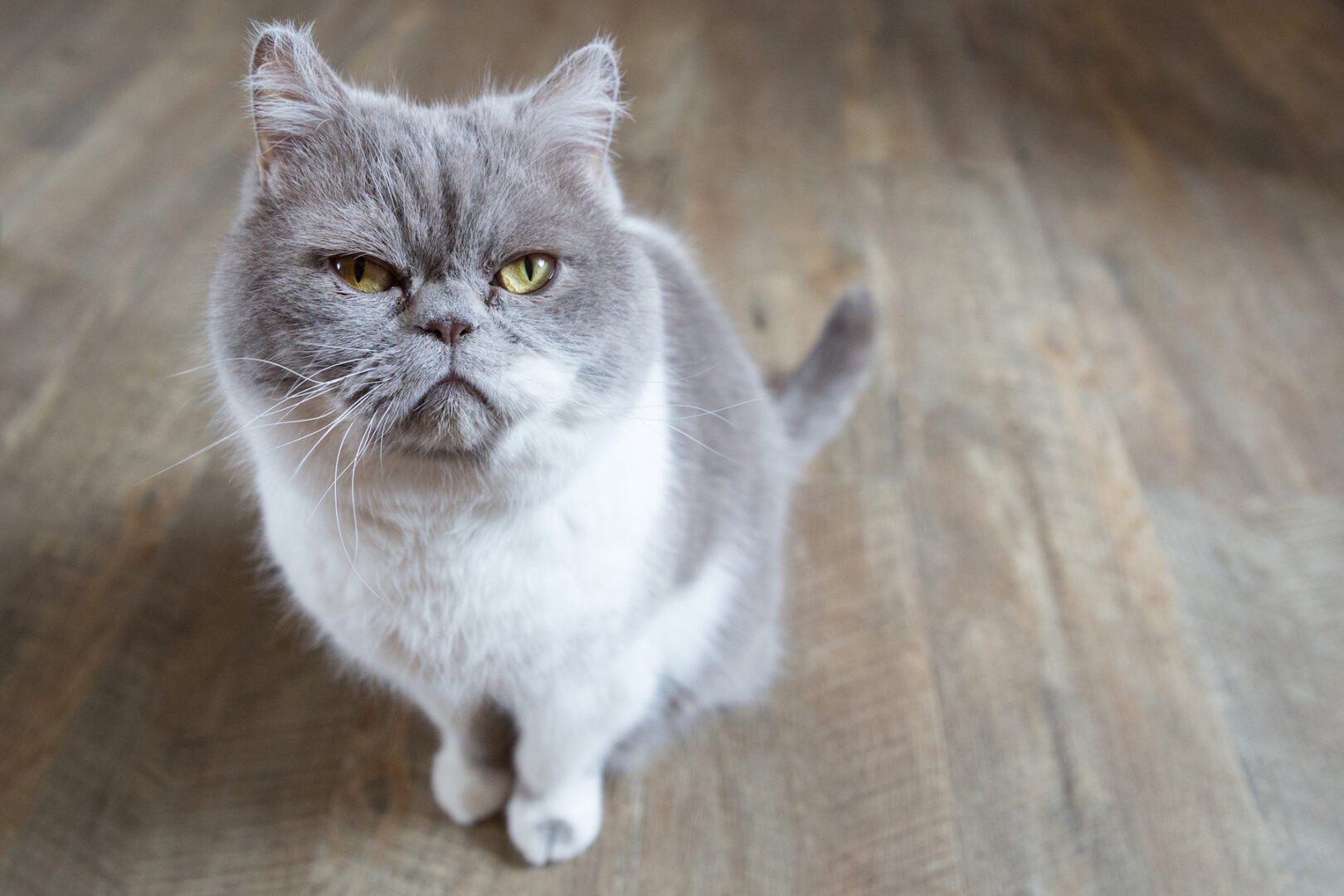Sometimes, no matter how much straining and pushing there is, the necessary result isn’t happening! Just as with the condition in humans, cat constipation is rather common and diet plays an important role. “The root cause of cat constipation is often improper nutrition,” points out Dr. Kim Bloomer, an animal naturopath and author of the site Aspenbloom Pet Care.
The term “constipated” means that the cat has infrequent bowel movements or ones that are difficult to pass. It may be caused by a diet too low in fiber, a lack of clean, fresh water or hairballs or other small items in your cat’s digestive tract. “The cat could also be suffering from a blockage present from birth or that developed due to injury or illness or a myriad of internal imbalances,” notes veterinarian Dr. Jane Brunt, executive director of the CATalyst Council and past president of the American Association of Feline Practitioners.
Other reasons that prevent a cat from pooping might be “painful lesions, such as strictures, masses or perianal disease,” says Anthea Appel, a New York City-based naturopathic/homeopathic animal consultant.
In general, elderly cats suffer this ailment more often than kittens, but a cat of any age or breed that eats a low-fiber diet or doesn’t drink enough water can develop it. For prevention, pet owners should be in close contact with their vets about the best diet for their cats.
Join Care for free
Strategies to try to help a constipated cat
Increase water intake
Ensure that your cat always has access to fresh water, as dehydration is big cause of constipation.
Regularly brush your cat
Most cats groom themselves rather well, but lending a helping hand can curb hairballs and lessen the chance of constipation. Excess fur in your cat’s GI tract can cause this ailment, so try brushing your pet a few minutes a day or bringing them to the groomer if you don’t have the time.
Encourage exercise
A lack of movement means the muscles aren’t working in your cat’s colon and this can worsen constipation. To fix it, get your cat moving by offering cat toys and encouraging them to jump, roll and chase things around the house.
Natural remedies for cat constipation
Help your feline ease elimination woes with these six natural remedies, but make sure to talk with your vet before introducing any new foods into their diet. Ask your cat’s doctor about appropriate additions and amounts.
1. Fiber-rich foods
For cats, fiber is very important and this substance is often lacking in domestic cat diets. Some to try are bran cereal or an over-the-counter product like psyllium (in stores, this is marketed as Metamucil). Adding a bit to your pet’s food each day can help regulate their bowel movements. Try this after talking to your vet about your pet’s constipation.
2. Pumpkin
A teaspoon of canned, pureed pumpkin once or twice a day may also help add the fiber your pet needs to go again. You can add this to your pet’s diet any time but especially if you notice that your cat is having difficulty with elimination.
3. Ginger
Consider ginger as an herbal remedy, says Appel. Check with your doctor about giving it in small amounts (about 1/4 teaspoon) for a short duration. Ginger can be mixed into your pet’s food once a day to help set their digestive tract back in motion if you notice they seem stopped up.
4. Licorice
Like ginger, this aromatic root has natural laxative properties. One dose (usually 2 ml, depending on the preparation and your cat’s weight) can be given in the evening for overnight relief.
5. Aloe vera juice
In small doses (about 1/2 teaspoon), aloe juice can help uncomplicated constipation, says Appel. But be careful, as giving too much may cause diarrhea in some animals. Talk to your vet about this before you try it.
6. Canned food
Nix the dry food. Hard kibble is moisture free, which can be a problem for your feline friend. (Too little water can cause constipation). To remedy this situation, try to wean your pet from dry food and feed him only the canned variety. Be patient, as the transition to a new kind of food can take a few weeks.
Peek in on your cat using the litter box and make a note of which of these remedies seems to help.
Original article written by Jennifer Kelly Geddes



